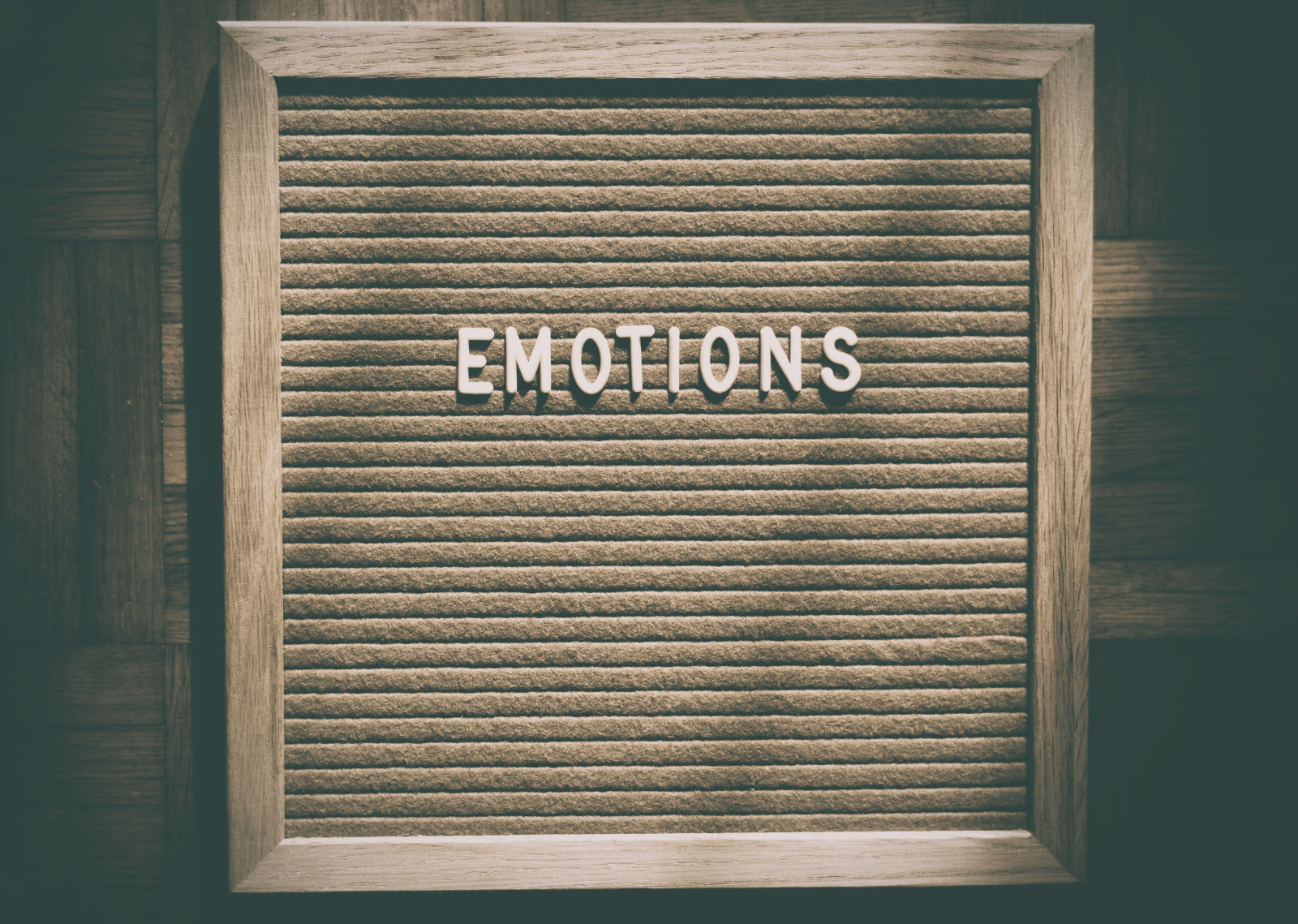
Migraines are one of the most debilitating conditions that can affect anyone. It can strike at any time, ruining your day, making it difficult to think or concentrate, and causing excruciating pain. And for those who suffer from chronic migraines, it can be a life-altering condition that can take away your freedom and ability to enjoy life as you know it. Despite the advancements in the medical field, many people still struggle with migraines that just won’t go away. So, what is the truth about chronic migraines, and why won’t they go away? Let’s take a closer look.
There is No Single Cause
One of the most challenging aspects of migraines is that there is no single cause. It is a complex condition that can be triggered by a variety of factors such as environment, diet, stress, and other underlying health conditions. Identifying the root cause of your migraines can be a daunting task, but it is crucial to understanding why they aren't going away. You may need to try different treatments before you find out what triggers your migraines.
Treatment is a Journey
Migraine treatment is not a one-size-fits-all solution. It is a journey that requires patience, trial and error, and a willingness to learn and grow. You may need to try many different lifestyle changes or alternative therapies before you find what works for you. It can be frustrating to go through different treatments with little or no improvement, but it is essential to remember that persistence pays off. Keep searching for the right treatment, and don't give up hope.
Lifestyle Changes are Key
The way you live your life can greatly affect your migraine. Factors such as diet, sleep, exercise, and stress management can all contribute to the frequency and severity of your migraines. By making lifestyle changes, such as eating a healthy diet, getting enough sleep, and practicing stress management techniques, you can reduce your risk of migraines and improve your overall well-being.
Self-Care is Essential
Self-care is a crucial aspect of dealing with migraines that won't go away. It is easy to get consumed with the pain and frustration of migraines, but taking care of yourself is important. Give yourself permission to rest when you need to, practice healthy boundaries, and prioritize your mental health. Remember that your mental and physical health are interconnected and taking care of one can greatly improve the other.
Dealing with migraines that won't go away can be a daunting task, but it is essential to remember that you are not alone. There is no single cause of migraines, and treatment is a journey that requires patience and a willingness to learn and grow. By making lifestyle changes, practicing self-care, and seeking help, you can take control of your migraines and improve your overall well-being. Don't give up hope; keep searching for the right treatment, and remember to be kind to yourself along the way.
Imagine escaping the torment of migraines and chronic illness and reclaiming your life. It may be a challenging path, but the rewards are immeasurable. Embark on this journey with us now. Join our uplifting Facebook group of moms who are transforming - going from Debilitated to Liberated. Take the first step by Clicking Here!

Debilitating migraines can be crippling, especially for busy moms who have a household to manage. It’s hard enough to cope with the pain, nausea, and sensitivity to light and sound; however, the added stress of not being able to communicate with those around you can make the situation even more challenging. So, what do you do when migraine strikes, and you can't talk? In this post, we’ll share some tips and insight on how to manage your migraines and communicate effectively during those instances when you're unable to speak.
Use Technology:
When you're unable to talk, technology can be your best friend. There are several apps on the market that will help you communicate your needs without saying a word. One such app is the Proloquo2Go, which has over 14,000 symbols and words that you can select to communicate with family, friends, and coworkers. Another helpful tool is to set up a text or messaging system with your loved ones, so you can alert them when you need help without using your voice.
Be Prepared:
One of the essential things you can do before you get a migraine is to be prepared. Keep a list of essential words and phrases that you can use to communicate with others. Communicate these phrases with your family and friends, so they'll know what to expect. This list could include simple phrases like 'I need help,' 'I’m in pain,' 'I need medicine,' or 'I need to rest.' Having these phrases handy can help reassure you that you can still communicate, even when your voice is not working.
Practice Writing:
While it may seem obvious, many people forget that they can use a pen and paper to communicate their needs. When you're feeling good, practice writing legibly, so that you can communicate more effectively when you can't talk. You can also purchase a mini dry-erase board that you can use at home or work. These boards are small enough to carry in your purse, and you can write your needs so that those around you can understand.
Use Sign Language:
Learning a few basic sign language phrases could be a game-changer if you have a chronic ailment like migraines that inhibits your ability to speak. The most challenging aspect will be learning the basics, and this can be quickly remedied by taking an online course or watching YouTube videos. It might take time, but being armed with sign language skills will be valuable in the long run.
Be Patient with Yourself:
Living with migraines is never easy, but when you're unable to talk, it can be downright frustrating. It's vital to be patient with yourself and others, and not to put too much pressure on yourself to communicate perfectly. Try to remain calm and focused and use your physical cues and body language to convey your needs. Don't be afraid to ask for help when you need it and allow yourself the time you need to recover.
Migraines can rob us of our ability to communicate, but that doesn't mean we have to be completely silent. By utilizing technology, preparing in advance, practicing writing and sign language, and having patience with ourselves, we can effectively communicate our needs during those times when our voices are not functioning. Remember to be kind to yourself, rest as much as possible, and don't forget to seek out help when needed. Together, we can manage migraine, even during those difficult moments when we can't talk.
Imagine escaping the torment of migraines and chronic illness to reclaim your life. It may be a challenging path, but the rewards are immeasurable. Embark on this journey with us now. Join our uplifting Facebook group of moms who are transforming - going from Debilitated to Liberated. Take the first step by Clicking Here!

Candles are a staple in many households. They add a calming ambiance to any room, fill the air with wonderful scents, and they make fantastic gifts. But what happens when you light a candle, and instead of feeling relaxed, you get an overwhelming migraine headache? It's not uncommon to have this experience, so don't worry. In this blog post, I'll explain what might be causing your candle-induced migraine and what you can do about it.
The Culprit: Fragrances in Your Candles
When it comes to candles, most of us care about one thing, and that's the scent. But the scents we love so much could also be responsible for our migraine headaches. The majority of candles contain chemicals that produce synthetic fragrances. These chemicals, like phthalates, are used to make the fragrances last longer. However, they can trigger migraines in people who are sensitive to strong smells.
The Mystery: Hidden Chemicals in the Wax
The wax in your candle could be another culprit for your headaches. Most candles are made with paraffin wax, which is derived from petroleum. As it burns, it releases toxic chemicals like benzene, toluene, and formaldehyde, all of which are known to cause migraines. Beeswax or soy wax are healthier alternatives to paraffin wax.
The Solution: Switch to Natural Products
The good news is, you can still enjoy a beautifully smelling home without triggering that debilitating migraine. The answer lies in natural products. Choose quality essential oils (don't purchase the cheaper ones because they have added chemicals) and use a diffuser or invest in a Himalayan salt lamp that claims to purify and ionize the air. Both of these natural alternatives can help you maintain indoor air quality without the headache.
The Practical Solution: Improve Air Quality
Last but not least is to avoid poor air quality. Poor air quality, in general, can trigger migraines, even without candles. Keep your windows open for fresh air. Use a HEPA filter air purifier or plants that purify the air. Adding a little bit of greenery to any room can make a world of difference to your health.
Nobody enjoys getting a migraine. The next time you light up a candle, you may want to think twice about the type of wax and fragrance you are exposing yourself to. Instead, choose natural alternatives, invest in quality essential oils and a diffuser or salt lamp, or opt for green plants to purify your air. With a little bit of effort, you can enjoy the ambiance and scent of candles without the unwanted headache.
We have the potential to break free from migraines and chronic illness and reclaim our lives. It’s a journey, to be sure, but one that’s worth taking. So let’s get started. Join the encouraging Facebook community of moms who are going from Debilitated to Liberated! Click Here

Are you tired of failed diet plans and weight loss scams? Look no further! This exclusive program, available only to my team and those connected to Martha and The Cutting Edge community, can change your life.
Don't just take my word for it. Hear from Katrina Kunstleben, a January Jumpstart graduate, as she shares her amazing results and reduced chronic pain. https://www.youtube.com/live/3Gcqz7Y3yoo?si=9wtRzTXznhjKMf3y She's excited to keep going on this transformative journey.
If you've struggled with losing weight, had diet plans fail you, lack body confidence, or just want to feel amazing physically and emotionally, this program is created for you.
Unlike other products and programs that aim to make money off of people, the 11-Day Jumpstart is based on real food. It follows the principles of our ancestors, before obesity, diabetes, acne, depression, and anxiety became prevalent. Backed by science and traditional wisdom, this program is designed to bring you long-lasting results, free from fad diets and weight loss scams.
Join Martha's team as they guide and coach you to reach happiness and health. Become the best version of yourself and jumpstart your journey with an 11-day plan. All you have to do is stick with it.
Here's what you'll get:
1. Weekly meal plans and daily outlines to ensure you're always prepared
2. Eleven days of at-home workouts suitable for everyone, with modifications for advanced athletes
3. Daily nutritional coaching via Facebook Live in our private group, leaving no question marks on your path to health and weight loss
4. Eight comprehensive guides on healthy living, including:
The Kitchen Clean-Out Guide: Eliminate unhealthy foods from your kitchen
Grocery Shopping Guide: Learn how to effectively shop for healthy groceries
Going Out Guide: Discover how to eat out without compromising your health goals
Non-Toxic Cleaning Guide: Reduce exposure to harmful household cleaning products
Non-Toxic Body Products Guide: Avoid toxins found in body products
Guide To Healthy Fats: Understand the importance of fats for weight loss
Guide To Healthy Sweets: Learn about safe alternatives to satisfy your sweet tooth
Guide To Kids Healthy Eating: Find strategies to feed your kids nutritious meals
Take the challenge: Give this program 11 days, and Martha will teach you how to achieve the body and life you desire. Guaranteed. No more need for endless diets or weight loss programs. Stick to this plan and discover the lasting results.
Get ready to finally achieve the body and life you've always wanted in just 11 days with Martha's program. Say goodbye to endless diets and weight loss programs - this is the game-changer you've been waiting for.
Here's the scoop:
1. Message me and let's chat about your goals and challenges.
2. I'll invite you to the exclusive group where the Jumpstart happens. You'll receive all the necessary guides and materials to kickstart your transformation.
3. Watch Martha's Daily Lives for expert coaching and guidance. Ask any questions you have and get real answers that will propel you forward.
4. You'll have me as your accountability partner, along with a supportive community of like-minded individuals. Transforming your body is so much more fun when you have support!
If you're ready to:
- Transform your body, health, and happiness
- Clear brain fog
- Reduce inflammation
- Say goodbye to diets forever
- Lower the risk of disease
- Lose weight with delicious, whole foods
- Regulate insulin levels
- Boost energy and feel amazing
- Finally get off the weight loss roller coaster
- Enjoy better sleep
- Experience true joy
- And achieve the body you desire...
Then this program is made for you. Let's work together to get you where you want to be.
To join, simply purchase the vitamins and minerals needed for the 11-Day Jumpstart. Just message me with the word "JUMPSTART" and we'll discuss how to get the supplements. Rest assured, these supplements are completely natural and safe for everyone. No synthetic substances or harmful compounds here - only vitamins derived from whole foods. It's time to take control of your health and happiness.

Have you ever experienced a migraine that left you feeling like you were hit by a truck? That intense, throbbing pain that makes it impossible to function? If so, you're not alone. Millions of people suffer from migraines, and while triggers like diet, environment, and genetics are often cited, emotions are frequently overlooked. But what if I told you that our bodies use physical pain to protect us from emotional pain, often resulting in migraines? Let's delve into this topic, inspired by my recent potato-digging contemplations.
To understand how emotions cause migraines, we need to look at the mind-body connection. Dr. John Sarno, in his book "The Divided Mind," explains that our bodies create physical symptoms as a way of distracting us from or protecting us from emotional pain. It's a defense mechanism that can manifest in a variety of ways, including migraines. Essentially, our bodies are saying, "Hey, you're feeling too much emotional pain – we need to find a way to distract you from that." Cue the migraine.
But how does this protection mechanism work? Well, according to Dr. David Schechter in his book "Think Away Your Pain," emotions can cause physical tension in the body. When we experience stress, grief, anger, or any intense emotion, our muscles often tighten up. This is helpful in the short term, as it prepares us for action, but in the long term, it can cause chronic pain – including migraines. Schechter suggests that we can train our brains to recognize and release this physical tension, reducing the likelihood of migraines.
So, what emotions are most likely to cause migraines? It varies from person to person, as we all have our unique emotional triggers. However, some common culprits include stress, anxiety, anger, and depression. If you're someone who experiences migraines frequently, it might be helpful to keep a journal of your emotional state leading up to each headache. This information can help you identify patterns and begin to take steps to manage your emotions and prevent migraines.
Speaking of prevention, there are a variety of natural remedies that can be effective in managing migraines caused by emotions. Acupuncture, massage therapy, and relaxation techniques have all been shown to reduce the frequency and severity of migraines. Additionally, herbal supplements like magnesium can also be helpful.
As we've explored in this post, the connection between emotions and migraines is complex – but it's important to understand. By recognizing how our bodies use physical pain to protect us from emotional pain, we can begin to take steps to manage our emotions and prevent migraines. Whether that means practicing relaxation techniques, taking herbal supplements, or seeking the help of a mental health professional, there are plenty of options for those who suffer from migraines. And remember – you're not alone. Reach out to others for support, and know that relief is possible.
We have the potential to break free from migraine pain and reclaim our lives. It’s a journey, to be sure, but one that’s worth taking. So let’s get started. Join the encouraging Facebook community of moms who are going from Debilitated to Liberated! Click Here












